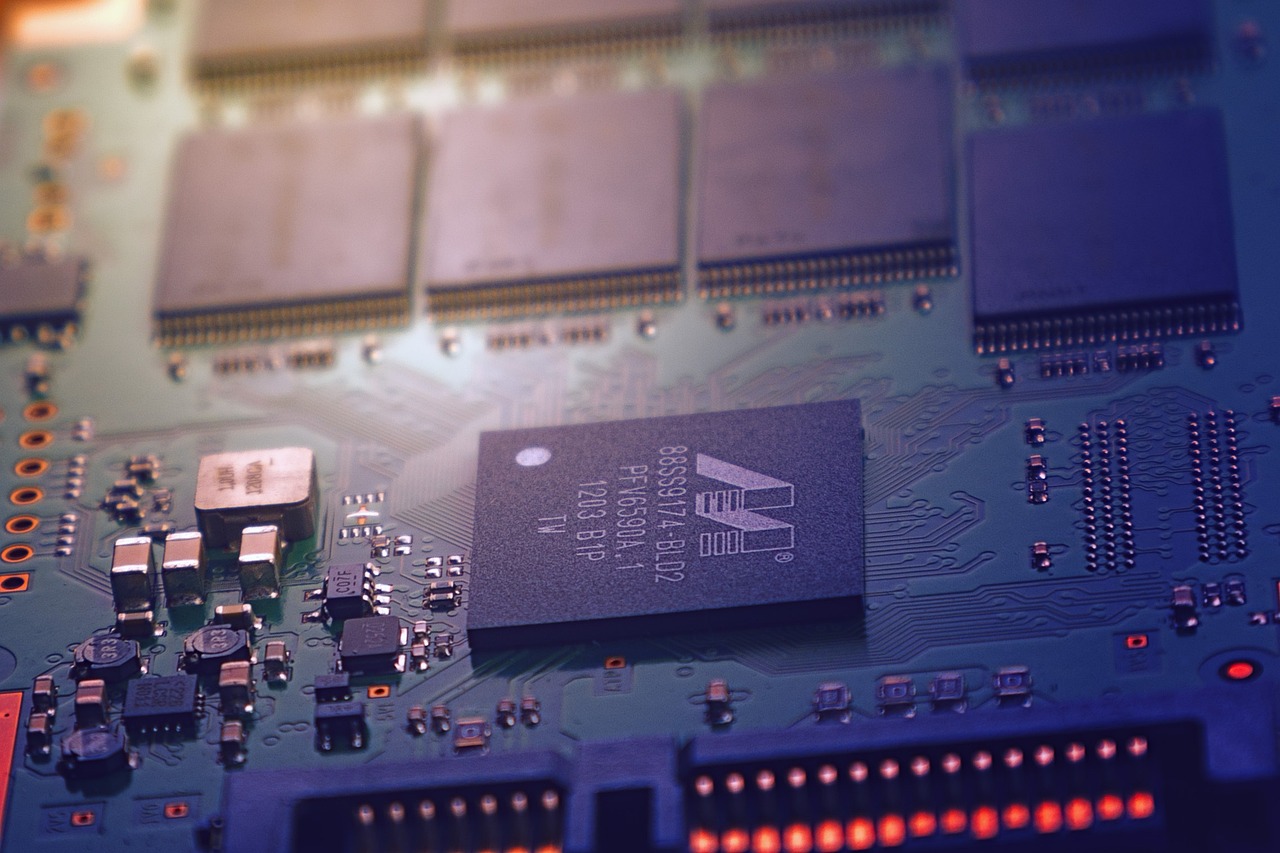In the fascinating realm of artificial intelligence (AI), big data plays an integral role in its evolution. By harnessing vast amounts of information, AI systems are able to learn, adapt, and make informed decisions. Big data fuels the development and advancement of AI algorithms, enabling machines to process and analyze massive datasets quickly and accurately. With the ever-growing abundance of information available, the synergy between big data and AI is shaping the future of technology, revolutionizing industries, and presenting endless possibilities.
The Relationship Between Big Data and AI
Definition of Big Data
Big data refers to large and complex data sets that are widely collected, stored, and analyzed to discover patterns, trends, and insights. These data sets are characterized by their volume, variety, and velocity. Volume refers to the enormous amount of data generated from various sources, including social media, sensors, and business transactions. Variety refers to the different types of data, such as text, images, videos, and audio. Velocity refers to the speed at which data is generated and needs to be processed.
Definition of AI
AI, or Artificial Intelligence, is a branch of computer science that enables machines to perform tasks that typically require human intelligence. It involves developing algorithms and models that can learn, reason, and make decisions based on data. AI technologies include machine learning, natural language processing, computer vision, and robotics. These technologies aim to replicate human cognitive functions and enhance problem-solving capabilities.
The Interconnection Between Big Data and AI
Big data and AI are two interdependent technologies that mutually benefit from each other. Big data provides the raw material that fuels AI development, while AI helps to process and extract valuable insights from big data. Without big data, AI models would lack the necessary data points to learn from and make accurate predictions. On the other hand, without AI, big data would remain as large, unstructured datasets without actionable insights. The combination of big data and AI allows organizations to leverage their data assets to make better decisions, improve processes, and develop innovative solutions.
How Big Data Enables AI Development
Data Collection and Processing
One of the primary ways big data enables AI development is through data collection and processing. The vast amount of data available allows AI algorithms to train on large, diverse datasets, which helps improve their accuracy and performance. Data collection involves gathering data from various sources, including sensors, social media platforms, customer interactions, and online transactions. This data is then processed, cleaned, and transformed into a usable format that AI models can understand.
Training AI Models with Large Datasets
Another way big data enables AI development is through the training of AI models using large datasets. AI models, such as neural networks, require massive amounts of labeled data to learn and make accurate predictions. Big data provides the necessary resources to train these models effectively. By exposing AI models to diverse and representative data, organizations can enhance their models’ ability to generalize and make accurate predictions on unseen data.
Advantages of Big Data for AI
The use of big data in AI development offers several advantages. Firstly, big data allows for more accurate predictions and insights. By training AI models on large datasets, the models can learn complex patterns and make accurate predictions based on historical data. Secondly, big data enables AI models to adapt and learn in real-time. As new data is continuously collected, AI models can update and refine their predictions, leading to more accurate and up-to-date insights. Lastly, big data helps uncover hidden patterns and trends that may not be apparent with smaller datasets. By analyzing large volumes of data, organizations can discover valuable insights that can drive innovation and competitive advantage.

Challenges and Limitations of Big Data in AI
Quality and Accuracy of Data
One of the main challenges of leveraging big data in AI is ensuring the quality and accuracy of the data. With the increasing volume and variety of data sources, it becomes crucial to validate the authenticity and reliability of the data. Low-quality or inaccurate data can lead to biased or unreliable AI models. Additionally, data integration from different sources can introduce inconsistencies and errors, making it essential to clean and preprocess the data before training AI models.
Privacy and Ethical Concerns
Another challenge of using big data in AI is the concern over privacy and ethics. As organizations collect and analyze vast amounts of personal data, there is a growing need to ensure data privacy and protect individuals’ rights. Safeguarding sensitive data and complying with privacy regulations becomes critical to maintain trust and transparency. Additionally, ethical considerations arise when developing AI models that may have unintended consequences or perpetuate bias and discrimination.
Data Bias and Lack of Diversity
Big data can also introduce bias and lack of diversity in AI models and their outcomes. Biased or imbalanced datasets can lead to discriminatory algorithms that reflect and perpetuate social biases. For example, if a facial recognition system is trained on a dataset that is primarily composed of images of one demographic, it may struggle to accurately recognize faces of other demographics. Addressing bias and promoting diversity in the data collection and training process is vital to ensure fair and inclusive AI systems.
The Impact of Big Data on AI Applications
Improving Natural Language Processing
Natural Language Processing (NLP) is a branch of AI that focuses on understanding and processing human language. Big data plays a crucial role in improving NLP capabilities. By training NLP models on large text corpora and linguistic databases, AI systems can better understand context, semantics, and language patterns. This enables more accurate language translation, sentiment analysis, chatbots, and language generation, leading to improved human-computer interaction.
Enhancing Computer Vision
Computer Vision is an AI technology that enables machines to interpret and understand visual data, such as images and videos. Big data has revolutionized computer vision by providing large, labeled datasets for training AI models. By training computer vision models on diverse and extensive image libraries, AI systems can accurately perform tasks such as object recognition, image classification, and image segmentation. This has significant applications in areas such as autonomous vehicles, surveillance, and medical imaging.
Optimizing Machine Learning Algorithms
Machine Learning algorithms form the backbone of AI systems, allowing machines to learn from data and make predictions or decisions. Big data is crucial for optimizing machine learning algorithms. With large datasets, AI models can identify complex patterns and correlations that may not be apparent with smaller datasets. This leads to more accurate predictions and improved algorithm performance. Additionally, big data enables the development and training of more sophisticated machine learning models, such as deep learning neural networks, which require massive amounts of data to learn effectively.

Big Data and AI in Industries
Healthcare
Big data and AI have transformative potential in the healthcare industry. By analyzing large volumes of patient data, AI systems can assist in diagnosis, treatment planning, and personalized medicine. AI models trained on medical images and patient records can aid in early detection of diseases, identify patterns for precision medicine, and deliver more personalized patient care. Additionally, big data analytics can help healthcare providers identify population health trends, optimize resource allocation, and improve overall healthcare delivery.
Finance
In the finance industry, big data and AI are revolutionizing processes such as fraud detection, risk assessment, and customer segmentation. AI models trained on vast amounts of financial data can identify anomalies and patterns indicative of fraudulent activities, helping financial institutions mitigate risks. Additionally, big data analysis enables more accurate credit scoring, personalized investment recommendations, and improved customer experiences.
Transportation
Big data and AI are reshaping the transportation industry by optimizing operations, improving safety, and enabling autonomous vehicles. AI algorithms trained on large transportation datasets can analyze traffic patterns, predict congestion, and optimize routes for efficient logistics. Big data analysis combined with AI technologies also enhances vehicle safety by enabling smart tracking, predictive maintenance, and real-time monitoring of transportation networks. Furthermore, autonomous vehicles rely on big data and AI for perception, decision-making, and navigation.
Retail
The retail industry benefits from big data and AI in various ways, including personalized marketing, inventory management, and demand forecasting. AI algorithms trained on vast amounts of customer data can provide personalized product recommendations, optimize pricing strategies, and enhance customer experiences. Big data analytics helps retailers understand consumer behavior, identify market trends, and optimize supply chain operations. By leveraging big data and AI, retailers can gain a competitive edge by delivering targeted and tailored shopping experiences.
Big Data and AI in Research and Development
Drug Discovery
Big data and AI have the potential to revolutionize the process of drug discovery. By analyzing vast repositories of biological and chemical data, AI systems can accelerate the identification of potential drug candidates. AI models can predict the properties and behavior of molecules, aiding in the design of new drugs and optimizing existing ones. Additionally, big data analytics enables the identification of patterns and correlations in large-scale clinical and genetic datasets, leading to the development of personalized medicine.
Climate Science
Climate science heavily relies on big data and AI to analyze climate models, satellite data, and climate sensors. AI algorithms trained on large climate datasets can improve weather forecasting, climate modeling, and the understanding of climate change. Big data analysis helps identify environmental patterns, detect anomalies, and predict extreme weather events, contributing to more accurate climate predictions and better-informed policy decisions.
Space Exploration
Big data and AI play a crucial role in space exploration by analyzing vast amounts of astronomical data and satellite imagery. AI systems trained on big data can automatically classify celestial objects, discover new celestial phenomena, and aid in the search for extraterrestrial life. Big data analytics enables the processing and analysis of large-scale astrophysical simulations, helping scientists understand the universe’s origins and evolution.

The Future of Big Data and AI
Emerging Technologies in Big Data and AI
The future of big data and AI is continually evolving with emerging technologies. One such technology is Edge Computing, which enables data processing and AI at the network edge, reducing latency and bandwidth requirements. Blockchain technology also holds promise for big data and AI applications, ensuring data integrity, security, and transparency. Additionally, Quantum Computing may revolutionize big data analysis and AI algorithms, solving complex problems faster and more efficiently.
Increasing Importance of Data Privacy
As the amount of data being generated and utilized continues to grow, the importance of data privacy becomes even more critical. Organizations need to prioritize data privacy and establish robust safeguards to protect sensitive information. Regulations such as the General Data Protection Regulation (GDPR) in Europe and the California Consumer Privacy Act (CCPA) in the US reflect the increasing emphasis on data privacy and provide guidelines for responsible data handling.
Ethical Considerations in AI Development
Ethical considerations will play a crucial role in the future of big data and AI. As AI systems become more advanced and autonomous, questions of transparency, accountability, and fairness arise. Organizations and policymakers need to address ethical concerns such as algorithmic bias, decision-making transparency, and the impact of AI on employment. Developing ethical frameworks and guidelines for AI development and deployment will be essential to ensure AI benefits society as a whole.
The Role of Big Data-Driven AI in Decision-Making
Enhancing Data-Driven Decision-Making
Big data-driven AI empowers organizations to make informed decisions based on accurate, real-time insights. By analyzing large datasets, AI models can uncover patterns, trends, and correlations that humans may overlook. This enables organizations to make data-driven decisions, optimize operations, and identify new opportunities for growth.
Automating Business Processes
Big data-driven AI also enables the automation of business processes, improving efficiency and productivity. AI technologies such as robotic process automation (RPA) can automate repetitive tasks, freeing up human resources for more strategic activities. By leveraging big data, AI systems can identify bottlenecks, streamline workflows, and optimize resource allocation, leading to improved business performance.
Predictive Analytics
Predictive analytics is a key application of big data-driven AI that helps organizations anticipate future outcomes and trends. By analyzing historical and real-time data, AI models can generate predictions and forecasts, enabling proactive decision-making. Predictive analytics has applications in various industries, such as financial forecasting, demand planning, predictive maintenance, and risk management.

The Role of Big Data in AI Model Training
Diverse Data Sources for Training
Big data provides the necessary diversity of data sources for effective AI model training. Collecting and integrating data from various sources, such as social media, customer interactions, and IoT devices, allows AI models to learn from a broader range of examples. Diverse data sources help reduce bias and enhance the generalization capabilities of AI models, leading to more accurate and inclusive predictions.
Data Labeling and Annotation
Data labeling and annotation is a crucial step in AI model training, where human experts manually annotate data with labels or tags to provide training examples. Big data plays a vital role in data labeling by providing a large pool of data that can be annotated. The availability of labeled data is essential for supervised learning algorithms, where AI models learn from labeled examples to make predictions. Big data simplifies the process of data labeling and enables the training of more accurate AI models.
Data Augmentation Techniques
Data augmentation techniques leverage big data to expand the training dataset and enhance AI model performance. By applying transformations to existing data, such as image rotation, flipping, or noise injection, data augmentation techniques can generate additional training examples. This helps AI models learn robust features and generalize better to unseen data. Big data enables the generation of diverse augmented data, improving AI model accuracy and robustness.
Conclusion
Big data and AI are intricately intertwined, with each technology complementing and supporting the other. Big data provides the raw material necessary for AI development, enabling the training and optimization of AI models. In turn, AI processes and extracts valuable insights from big data, enhancing decision-making and innovation across various industries. The impact of big data on AI is evident in applications such as natural language processing, computer vision, and machine learning algorithms. As big data continues to grow in volume and complexity, it will drive the evolutionary trajectory of AI, shaping the future of technology and society as a whole.










